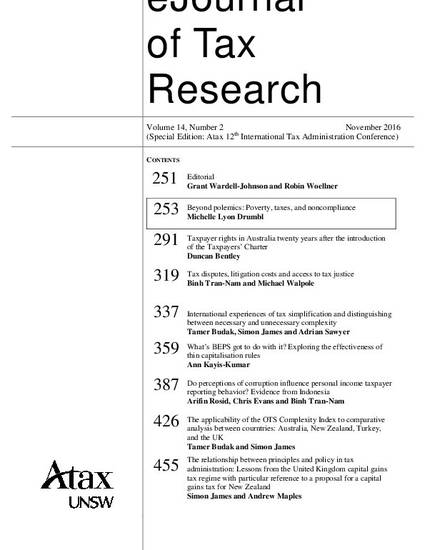
The earned income tax credit (EITC) is perhaps the most significant refundable credit in the U.S. tax system. Designed as an anti-poverty program, it is a social benefit administered by the Internal Revenue Service (IRS). Studies show it has a positive impact upon the children whose families receive it. Despite its many positives, however, the EITC is a program that for years has been plagued by taxpayer noncompliance. Though it is believed that the majority of EITC noncompliance may be unintentional, public reports of misconduct and fraud hurt the program’s image and fuel political rhetoric.
This article unpacks the rhetoric. It describes why the term ‘improper payments’ is not synonymous with fraud. It places EITC noncompliance within the broader context of the US ‘tax gap,’ explores motivations for intentional EITC noncompliance, and examines the role of inadvertent error in the overpayment rate.
Building upon theories of taxpayer noncompliance, the article concludes that increasing the amount of information required from all taxpayers (whether self-prepared or using a preparer) at the time of filing will reduce both intentional and unintentional EITC errors. Increasing these requirements, coupled with slowing down the refund process generally, is a reasonable way to improve administration of the EITC program without unduly burdening low-income taxpayers.

Posted with permission from the copyright owner.